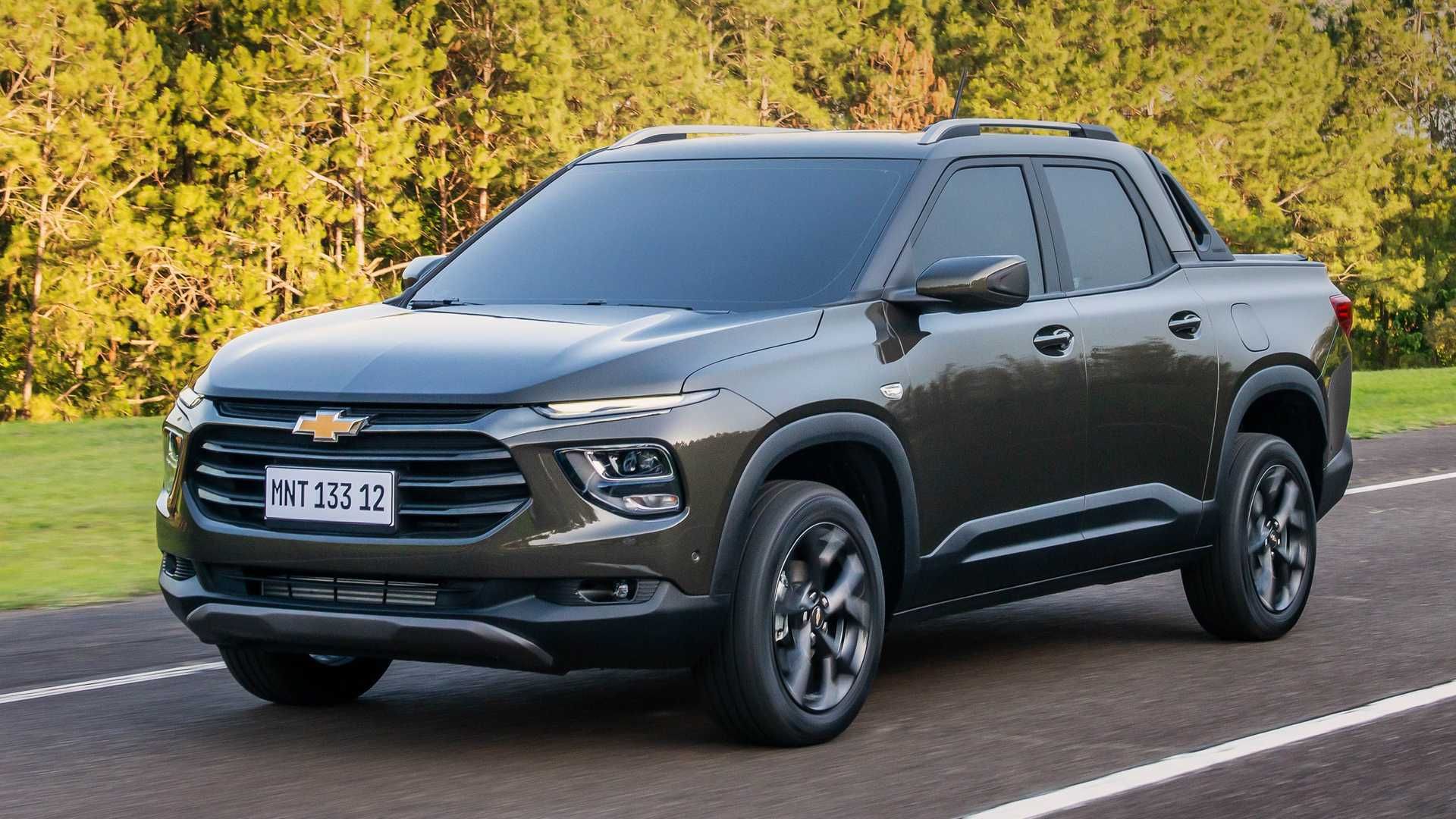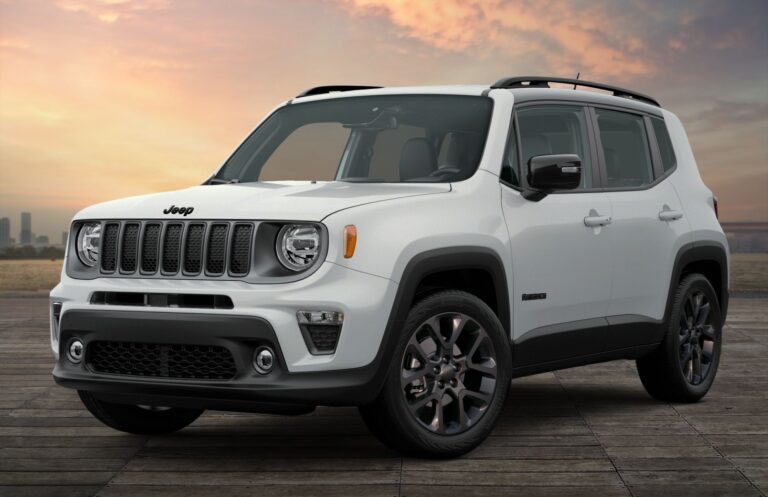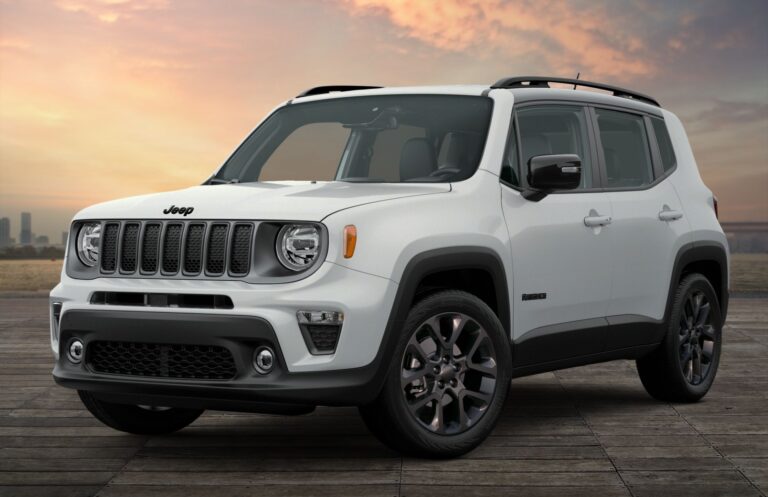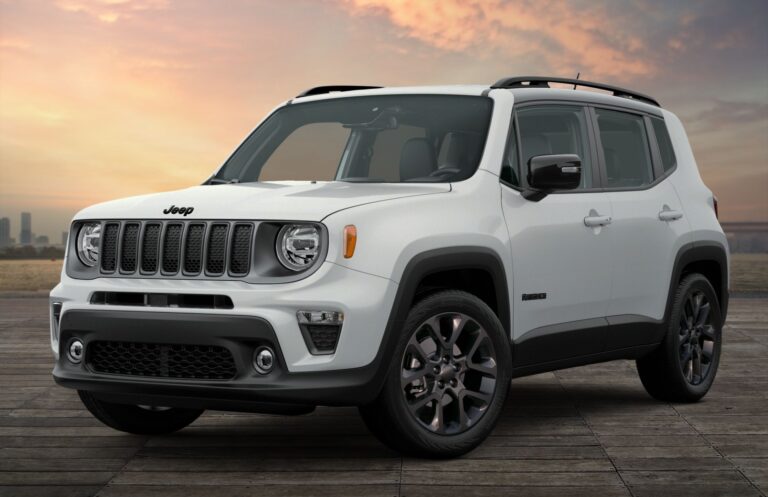Chevrolet Jeep For Sale: Navigating the World of Engine-Swapped Off-Road Icons
Chevrolet Jeep For Sale: Navigating the World of Engine-Swapped Off-Road Icons jeeps.truckstrend.com
The phrase "Chevrolet Jeep" might initially raise an eyebrow for those familiar with automotive brands, as Chevrolet and Jeep are distinct manufacturers. However, in the vibrant and innovative world of off-road customization, "Chevrolet Jeep" is a widely recognized and highly sought-after type of vehicle. It refers to a Jeep chassis – typically an older, classic model like a CJ, YJ, or TJ Wrangler – that has undergone a significant transformation: the replacement of its original engine with a robust and powerful Chevrolet powerplant, most commonly a V8 or a modern LS-series engine.
This unique fusion creates a vehicle that marries Jeep’s legendary off-road prowess, compact dimensions, and iconic styling with the immense power, reliability, and vast aftermarket support of Chevrolet engines. For enthusiasts, this isn’t just a simple engine swap; it’s an art form that transforms an already capable off-roader into a high-performance beast, equally at home crawling over rocks or cruising down the highway with newfound vigor. Understanding the nuances of these custom builds is crucial for anyone looking to buy or sell a "Chevrolet Jeep," making this article your comprehensive guide to this exciting segment of the custom vehicle market.
Chevrolet Jeep For Sale: Navigating the World of Engine-Swapped Off-Road Icons
Why the "Chevrolet Jeep" Phenomenon? The Allure of the Swap
The decision to swap a Chevrolet engine into a Jeep is driven by a compelling set of advantages, addressing common limitations of original Jeep powertrains while enhancing overall performance and driving experience.
1. Power and Performance Redefined: Older Jeeps, while undeniably rugged, often came with engines that, by modern standards, are considered underpowered. The venerable 4.0L inline-six, while reliable, often lacked the raw horsepower and torque desired for highway merging, heavy towing, or aggressive off-roading. Chevrolet V8s, particularly the small-block 350 or the modern LS series, deliver a monumental increase in power and torque. This translates to effortless acceleration, superior hill-climbing ability, and the confidence to tackle challenging terrains that would leave stock Jeeps struggling.
2. Unmatched Reliability and Parts Availability: Chevrolet’s small-block and LS engines are celebrated for their legendary durability and simple, robust designs. They are workhorses, built to withstand abuse and rack up hundreds of thousands of miles. Furthermore, the sheer volume of these engines produced over decades means that parts – both OEM and aftermarket – are incredibly abundant, affordable, and easy to find. This significantly simplifies maintenance and repairs, making ownership more practical and less costly in the long run compared to sourcing specialized parts for older, less common Jeep engines.
3. Cost-Effectiveness and Value: While an engine swap is a significant undertaking, it can often be more cost-effective to achieve substantial power gains than heavily modifying an original Jeep engine. A well-executed Chevrolet swap can add considerable value to a Jeep, transforming it into a high-demand custom vehicle. The initial investment in the swap often pays dividends in terms of enhanced performance, increased reliability, and a more enjoyable driving experience.
4. The Soundtrack of Performance: Beyond the tangible benefits, there’s an undeniable emotional appeal. The distinctive rumble and throaty roar of a V8 engine under the hood of an open-top Jeep is an exhilarating experience that a four-cylinder or inline-six simply cannot replicate. It adds character and a visceral connection to the driving experience.
5. The Ultimate Customization Statement: For many, building a "Chevrolet Jeep" is about personal expression and crafting a truly unique vehicle. It’s a statement of capability, a blend of two iconic American automotive legacies into a singular, purpose-built machine designed to excel where others fall short.
Common Chevrolet Engine Choices for Jeep Swaps

The choice of Chevrolet engine is critical and depends on various factors, including budget, desired performance, complexity of the swap, and emissions considerations.
-
Small Block Chevrolet (SBC) 350/305: These classic carbureted V8s are a staple in the custom world. They are relatively inexpensive, widely available, and well-understood by mechanics. Swaps involving SBCs are often simpler mechanically, but they may pose challenges with fuel efficiency and emissions compliance in some regions. They offer a significant power bump over stock Jeep engines and a timeless V8 sound.
-
LS Series Engines (LS1, LS2, LS3, LS6, LS7, LM7/5.3L, LQ4/6.0L): The modern kings of engine swaps, LS engines are incredibly popular due to their impressive power-to-weight ratio, fuel injection (leading to better efficiency and cold starts), compact size, and immense tuning potential. The 5.3L (LM7) and 6.0L (LQ4/LQ9) Vortec truck engines are particularly favored for their affordability and robust nature, often sourced from salvage yards. While an LS swap is generally more complex due to the sophisticated wiring and computer integration, the benefits in terms of performance, reliability, and driveability are well worth the effort for many.
-
Vortec Truck Engines (4.8L, 5.3L, 6.0L): These are essentially the workhorse versions of the LS architecture, found in millions of Chevrolet and GMC trucks and SUVs. They offer excellent torque characteristics, are built to last, and are readily available at competitive prices. They strike a fantastic balance between performance, cost, and reliability for a Jeep swap.


Each engine choice has its unique set of challenges and benefits, influencing the overall character and capability of the "Chevrolet Jeep."
Key Considerations When Buying a Chevrolet Jeep
Purchasing a custom-built vehicle like a "Chevrolet Jeep" requires a much more thorough inspection and understanding than buying a factory-stock model. The quality of the engine swap is paramount.
-
Quality of the Swap: This is the single most critical factor. Was the swap performed by a reputable professional shop with experience in these conversions, or was it a backyard project? Look for clean, organized wiring (no loose or exposed wires), proper engine mounts, professional-looking welds, and appropriate clearance for all components. A poorly executed swap can lead to endless headaches, costly repairs, and potential safety hazards.
-
Cooling System Adequacy: V8 engines generate significantly more heat than the original Jeep engines. Ensure the cooling system has been upgraded to match the new engine’s demands. This means a larger, high-performance radiator, electric fans (if applicable), and correctly routed, robust coolant lines. Overheating is a common issue with inadequate cooling setups.
-
Drivetrain Compatibility and Upgrades: The increased power and torque of a V8 can quickly overwhelm stock Jeep transmissions, transfer cases, and especially axles. Inquire if these components have been upgraded. Common upgrades include heavy-duty automatic transmissions (like a 4L60E or 4L80E), stronger transfer cases (e.g., Atlas, NP231 with slip yoke eliminator), and reinforced or aftermarket axles (e.g., Dana 44, Dana 60, Ford 8.8) with appropriate gearing. A weak drivetrain behind a powerful engine is a recipe for expensive breakage.
-
Electrical System Integration: A professional swap will have the engine’s electrical system seamlessly integrated with the Jeep’s original wiring. All gauges should function correctly, and there should be no persistent check engine lights (unless intentional for specific off-road tuning). Ask about the computer (ECU/PCM) and if it has been reprogrammed for the swap.
-
Frame and Suspension Reinforcement: Depending on the engine’s weight and the intended use, the Jeep’s frame might require reinforcement. Similarly, the suspension components (springs, shocks, control arms) should be capable of handling the increased weight and power. Look for signs of stress or inadequate components.
-
Emissions and Legality: This is a major concern. Engine swap laws vary dramatically by state or country. Some regions have strict rules regarding engine vintage (newer engine into older vehicle often okay, older into newer usually not), catalytic converters, and OBD-II functionality. Ensure the vehicle can be legally registered and pass required inspections in your area. This might be a deal-breaker if not compliant.
-
Rust Inspection: As with any older Jeep, thoroughly inspect the frame, body mounts, floorboards, and tub for rust. An engine swap doesn’t negate the potential for a rusty chassis.
-
Documentation and History: Ask for all available documentation: receipts for the engine, swap components, labor, and any maintenance records. Photos of the build process are also incredibly valuable, providing insight into the quality of the work.
-
Thorough Test Drive: Don’t just drive it around the block. Take it on the highway to check for overheating, vibrations, and proper shifting. Test it in 4WD (if applicable) and listen for any unusual noises. Does it steer straight? Do the brakes feel adequate for the increased power?
Preparing Your Chevrolet Jeep for Sale: Tips for Sellers
Selling a custom vehicle like a "Chevrolet Jeep" requires careful preparation and honest representation to attract the right buyer and achieve a fair price.
- Document Everything Meticulously: This is your most powerful selling tool. Compile a binder or digital folder with every receipt for parts, labor, the engine itself, and any maintenance performed. Include photos or videos of the build process, highlighting key stages and the quality of the work. This transparency builds immense trust with potential buyers.
- Be Fully Transparent: Disclose all modifications, the exact specifications of the engine swap (e.g., "LS1 from a 2000 Camaro, professionally installed with standalone harness"), and any known quirks or minor issues. Honesty upfront prevents surprises and builds confidence.
- Present It Flawlessly: A clean vehicle sells faster and for more money. Detail the interior and exterior, and pay special attention to the engine bay. A spotless, well-organized engine bay showcases the quality of the swap.
- High-Quality Photos and Video: Invest time in taking professional-quality photos from all angles, including the engine bay, undercarriage, and interior. A walk-around video and a video demonstrating the engine running and driving are highly effective.
- Highlight the Unique Benefits: Emphasize the specific advantages of your build: the increased horsepower, improved fuel injection, enhanced off-road capability, or specific upgrades like upgraded axles or a custom suspension. What makes your "Chevrolet Jeep" stand out?
- Set a Realistic Price: Research similar engine-swapped Jeeps for sale. Factor in the cost of the base vehicle, the engine, the swap components, labor (if professional), and any other significant modifications. Be prepared to justify your price with documentation.
- Target the Right Audience: Market your "Chevrolet Jeep" on platforms popular with off-road enthusiasts, custom vehicle builders, and classic Jeep aficionados. Forums, specialized classifieds, and enthusiast groups are often more effective than general marketplaces.
Challenges and Solutions in the "Chevrolet Jeep" Market
While highly rewarding, dealing with "Chevrolet Jeeps" can present specific challenges for both buyers and sellers.
- Challenge: Poorly Executed Swaps:
- Solution: For buyers, a pre-purchase inspection by a mechanic specializing in custom vehicles or engine swaps is non-negotiable. For sellers, hiring a professional shop for the swap, or meticulously documenting a DIY build, is crucial for credibility.
- Challenge: Emissions and Legality:
- Solution: Research local laws thoroughly before buying or building. Opt for newer LS engines with OEM ECUs for easier compliance. Buyers should confirm the vehicle can be registered in their state before purchase.
- Challenge: Drivetrain Component Weaknesses:
- Solution: Factor in potential costs for upgrading the transmission, transfer case, and axles to handle the increased power. Many quality swaps will have already addressed these.
- Challenge: Insurance Complications:
- Solution: Be upfront with your insurance provider about the extensive modifications. Some may require a specialized policy for modified vehicles, or they might not cover certain types of damage if the modifications weren’t disclosed.
- Challenge: Resale Value Fluctuation:
- Solution: The value of a "Chevrolet Jeep" is highly dependent on the quality of the build. A professional, well-documented swap will command a premium, while a shoddy one will depreciate significantly. Transparency and thorough documentation are key to maintaining value.
Pricing Your "Chevrolet Jeep": A Comprehensive Table
Pricing a "Chevrolet Jeep" is highly variable, as each vehicle is a custom build with unique specifications, condition, and quality of swap. The table below provides general estimated ranges based on common configurations, but actual prices can vary significantly.
| Jeep Model | Engine Swap Type | Condition & Quality of Swap | Estimated Price Range (USD) | Notes |
|---|---|---|---|---|
| Willys CJ-2A/3A | Small Block 350 | Fair-Good, Basic Swap | $15,000 – $30,000 | Vintage appeal, often simpler swaps, less refined ride. |
| Jeep CJ-5/CJ-7 | Small Block 350 | Good, Well-Executed Swap | $18,000 – $35,000 | Classic choice, readily available parts. |
| Jeep CJ-5/CJ-7 | LS (5.3L/6.0L) | Good-Excellent, Pro-level Swap | $25,000 – $50,000+ | Modern power, more complex swap, higher demand due to performance. |
| Jeep YJ Wrangler | Small Block 350 | Good, Solid Swap | $15,000 – $28,000 | Leaf-sprung, popular budget-friendly swap candidate. |
| Jeep YJ Wrangler | LS (5.3L/6.0L) | Good-Excellent, Quality Build | $20,000 – $40,000+ | Significant power improvement for YJ, often with suspension upgrades. |
| Jeep TJ Wrangler | LS (5.3L/6.0L) | Good, Thorough Swap | $25,000 – $45,000 | Coil-sprung, better ride, very common for LS swaps. |
| Jeep TJ Wrangler | LS (6.2L+) | Excellent, High-Performance Build | $40,000 – $65,000+ | Top-tier performance builds, usually with extensive supporting mods. |
| Jeep JK Wrangler | LS (6.0L/6.2L) | Good-Excellent, Professional Only | $50,000 – $90,000+ | More complex and expensive swaps due to modern electronics. |
| Jeep JL Wrangler | LS/Hemi (Pro-built) | Excellent, Top-Tier Conversion | $80,000 – $150,000+ | Very specialized, often by dedicated conversion companies, for show/extreme builds. |
| General Note | Poorly Done Swap | Any condition, Incomplete/Faulty | Significantly Lower ($5,000-$15,000) | Can be a costly money pit. Buyer beware. |
| General Note | Professional Swap, Full Docs | Excellent, Well-Maintained | 10-30% Premium over avg. | High confidence in quality, reliability, and long-term value. |
Disclaimer: Prices are highly variable based on engine type, specific modifications, condition of the base vehicle, quality of the swap, geographical location, and current market demand. This table provides general estimates and should be used as a guide, not a definitive price list.
Frequently Asked Questions (FAQ) About Chevrolet Jeeps
Q: Is a "Chevrolet Jeep" a real factory vehicle?
A: No, it is not a production model from either Chevrolet or Jeep. A "Chevrolet Jeep" is a custom vehicle created when a Chevrolet engine (typically a V8 or LS-series) is swapped into a Jeep chassis by an aftermarket builder or enthusiast.
Q: Why do people choose a Chevy engine over another brand for a Jeep swap?
A: Chevrolet engines, especially the small-block and LS series, are favored for their abundant availability, relatively low cost, legendary reliability, excellent power output, and vast aftermarket parts support.
Q: Are engine-swapped Jeeps legal to drive on the street?
A: Legality depends entirely on your local and state (or country) emissions and vehicle inspection laws. Some regions are very strict about engine swaps, requiring specific compliance measures, while others are more lenient. Always research your local regulations before buying or building.
Q: What are the best Jeep models for a Chevrolet engine swap?
A: The Jeep CJ-7, YJ Wrangler, and TJ Wrangler are among the most popular choices due to their relatively simple construction, robust frames, and ample engine bay space. JK and JL Wranglers are also swapped, but they are significantly more complex and expensive due to their advanced electronics.
Q: What are the most common issues or challenges with engine-swapped Jeeps?
A: Common issues include overheating (due to inadequate cooling systems), electrical gremlins (from poor wiring integration), drivetrain component failure (if not upgraded to handle increased power), and difficulty with emissions compliance.
Q: Can I daily drive a "Chevrolet Jeep"?
A: Many "Chevrolet Jeeps" are built to be reliable daily drivers, offering a significant upgrade in highway performance. However, this depends heavily on the quality of the engine swap, the overall condition of the vehicle, and whether all systems (cooling, drivetrain, electrical) are properly integrated and robust.
Q: How much does a quality Chevrolet engine swap typically cost (labor + parts)?
A: The cost of a professional engine swap can vary widely. For parts, it might range from $5,000 to $15,000+ depending on the engine, adapter kits, and supporting modifications (cooling, fuel system, exhaust). Professional labor can add another $5,000 to $15,000+, pushing total swap costs (excluding the base Jeep) to between $10,000 and $30,000+. DIY swaps can be cheaper but require significant mechanical skill and specialized tools.
Concluding Summary
The "Chevrolet Jeep" represents a unique and powerful niche within the custom automotive world, offering the best of both iconic brands: the legendary off-road capability and classic appeal of a Jeep, combined with the formidable power, reliability, and widespread support of Chevrolet engines. These vehicles are not merely Frankenstein creations but often meticulously engineered machines designed to conquer any terrain with a commanding presence.
For buyers, understanding the critical aspects of an engine swap – from the quality of the work to drivetrain compatibility and legal compliance – is paramount to making a wise investment. For sellers, transparency, comprehensive documentation, and a deep understanding of your build’s value are key to a successful transaction. Whether you’re seeking a high-performance trail rig or a head-turning daily driver, a well-executed "Chevrolet Jeep" offers an unparalleled driving experience, embodying the spirit of American ingenuity and the relentless pursuit of ultimate off-road performance.



